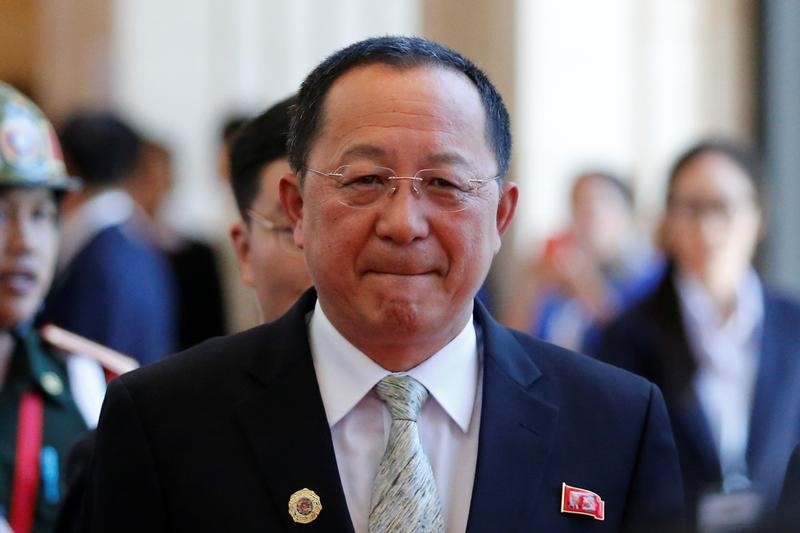SEOUL (Reuters) - North Korea's foreign minister said on Tuesday that its conducting of more nuclear tests depended on the behaviour of the United States, South Korea's Yonhap news agency reported.
The minister, Ri Yong Ho, said, however, that the United States had destroyed the possibility of a nuclear-free Korean peninsula.
Ri said North Korea was a responsible nuclear state and would not use its atomic arms unless threatened, repeating its stated position. He was speaking to reporters on the sidelines of an Association of South East Asian Nations (ASEAN) meeting in Laos.
North Korea conducted its fourth nuclear test in January triggering the latest U.N. Security Council resolution with further sanctions on the isolated state. The North was seen to be in a state of readiness to conduct an additional nuclear test, according to South Korean officials and experts.
"Any additional nuclear test depends on the position of the United States," Ri was quoted by Yonhap as telling reporters.
Yonhap did not carry further comments by Ri but in the past the North has demanded the withdrawal of U.S. military from South Korea and an end to joint drills by U.S. and South Korean forces involving nuclear-powered equipment.
"As a responsible nuclear state, we will not recklessly resort to its use in the absence of substantive threat, unless we are threatened by invasion by another nuclear power state," he was quoted as saying.
Ri added the North's leader Kim Jong Un has called for a peace treaty with the United States to replace the armistice signed at the end of the 1950-53 Korean War and the removal of all U.S. troops and equipment from the South.
"This, we believe, is the only way," Ri said, according to Yonhap.
Ri said earlier in remarks to the ASEAN conference that the North had made "an inevitable strategic decision that there is no other option but facing with nuclear deterrent the never ending nuclear blackmails of the U.S."

The Korean peninsula has been in a state of heightened tension following the North's fourth nuclear test in January and a long-range rocket launch the next month that prompted the South and the United States to impose their own sanctions.